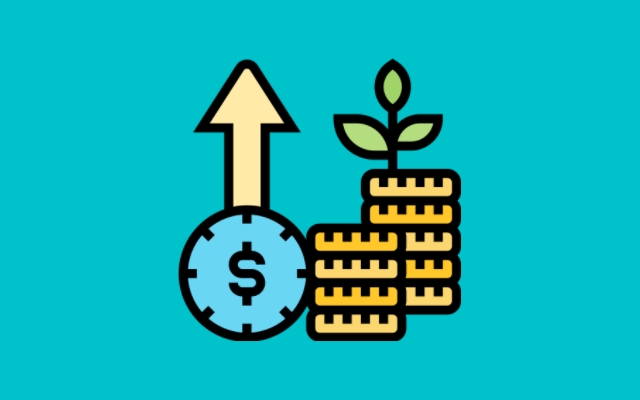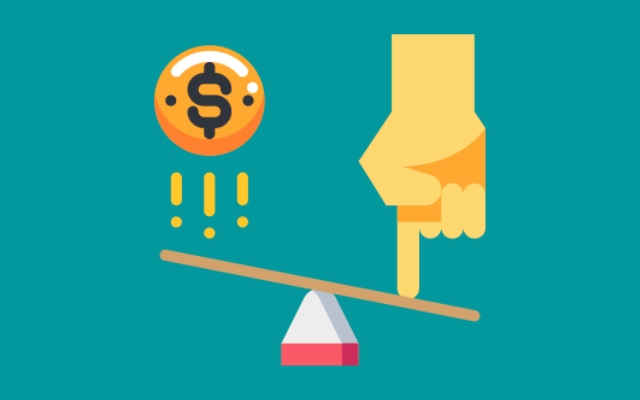1-Line Summary: The Parable Of The Pipeline by Burke Hedges discusses how most people delude themselves with the idea of job security, while all they do is trade their time for money and lose the opportunity to build systems that pay for a lifetime.
Who should read this book?
- Anyone who wants to build wealth and become rich.
- Anyone interested in building businesses and becoming financially free.
- Businesspersons who wish to leverage their time and money.
- A person who doesn’t know about the power of the Internet economy.
- A person with a job who is dependent on a single source of income.
Best Tools for Bibliophiles
- Listen to your Favorite Books on The Go: Try Audible and Get Up To 2 Free Audiobooks | Get 3 Free Audiobooks
- Read over 2 million e-books on any device: Sign up for 30 days free trial of Kindle Unlimited and read your favorite titles.
- Get free 2-day shipping of your favorite books and stream premium TV shows on Amazon Prime: Sign up for 30 days free trial of Amazon Prime.
- I use Notion to take reading notes, plan everything, and run all my businesses. (Notion is my Second Brain 🤯): Get Notion for free for personal use (paid for teams/businesses)
The Parable Of The Pipeline Summary [PDF]
Ever thought about why around 99% of people spend their entire life living paycheck to paycheck and still fail to enjoy royalties like successful people?
How do successful people build intelligent systems that pay them for their lifetime?
In this book summary, I’ll throw light on such questions.
I’ve learned all these wonderful lessons from this book. Also, I’m no finance guru to advise you on what you should do with your money.
The best part? Anybody can learn these simple lessons and use them to become wealthy.
By the end of this book summary, you will have a different mindset about money. You will understand the psyche behind wealthy minds.
Alright, so let’s get started!
Lesson #1: Jobs that trade time for money are not reliable in the long term.

Most people run after jobs.
Why?
Because they provide paychecks.
Jobs provide money to pay bills.
That’s the logic, right?
But…
There is a big problem.
Jobs ask you to trade time for some money.
The more time you spend, the more you get paid at the end of the month.
Now, you might say…
“Well, it’s okay. That’s not a big deal.”
The point is:
It seems reasonable as long as you are trading your time.
But…
What if you become incapable of trading your time due to sickness or injury?
What will you do in your old age, when your muscles won’t be as strong as now?
Suggested reading: Ikigai (Book Summary)
You can’t always be working all the time.
Or can you?
So, it might be an excellent strategy to get money by doing a job in the short term.
But the moment you stop working, your entire lifestyle takes a big hit.
Also, once you get tuned to a particular lifestyle, it becomes harder to adjust.
Let’s say you are doing a job, and you get $20k/month.
Now imagine if you stop going to your office for a few days due to some problem.
Your salary will be affected.
Your angry boss may even fire you and get someone else on board.
But since you are used to spending more money on fancy products or subscriptions, you will struggle to adjust to the newer lifestyle.
What if your company starts firing its employees due to some random market crash? Your salary would instantly become NULL, right?
Again imagine…
What if you are a teacher and your eyesight becomes weak after an accident? You won’t be able to teach then, right?
You may argue that there is always another way.
Yes, that’s true. There are many ways.
But if you don’t have a reliable system that pumps out cash sustainably, you should start thinking about it.
Sure, you can argue that those are all imaginary scenarios. Nonetheless, a wise person always has plans for the worst case.
Now let me share a fantastic story by the author of this book…
Keep reading…
Lesson #2: The day you stop working, money flow stops. (If you haven’t built any system)

So in this book, the author shares an exciting story of two friends: Pablo and Bruno.
Pablo and Bruno both had the same job of delivering water to every home in the village.
Pablo carried plenty of buckets and got paid immediately.
He was happy carrying buckets.
Surprisingly, Bruno was a smarty!
He built a pipeline half of the time. And used the remaining time to carry buckets.
Bruno was getting paid less than Pablo as he spent most time carrying buckets.
But once Bruno’s pipeline started delivering water, Pablo got out of business.
The reason?
People then didn’t have to wait for any person to get water. It was delivered systematically through the pipeline system.
All the village people had to do was to turn their taps on.
Pretty impressive, isn’t it?
So, who is the winner here?
Yes, it’s Bruno.
He had a long-term vision.
Yes, it was risky to do something that nobody was doing.
But that’s also why Bruno got rich and got the most profit out of his pipelines.
The author says that there are two types of people in this world:
- Bucket Carriers
- Pipeline Builders
Sadly, most people have the mindset of Pablo.
They get paid only when they carry buckets.
If they want more money, they will have to work hard and carry more buckets.
But the people who have the mindset of Bruno work smartly.
They build systems once and reap the money for their entire life.
It sounds like passive money.
Bucket carriers have an active income.
However, the pipeline builders have multiple sources of passive income.
Does this mean they don’t have an active income? No.
The best strategy is to have an active income and build a source of passive income to get freedom from trading your time eventually.
Lesson #3: It’s hard to convince people to build systems instead of living paycheck to paycheck.
No matter how excellent the idea of passive income or pipeline building is, sadly, most people (99%) would never accept this idea.
And there is a big reason for that…
If you take a quick look around you, what do you see most people doing?
Are they carrying buckets or building pipelines?
Are they worried about their next paycheck, or are they planning systems?
I bet most people don’t even know what a system means in the context of real life.
There is a thing called Social Proof.
Since most people love living paycheck to paycheck, we think that they must have appropriately thought and how everybody can be moving in the wrong or deluded manner.
But that’s not true.
Just because everybody is thinking about a job, it doesn’t mean that it’s the only way to live a prosperous life.
The author is not against jobs. He is against the idea of deluding ourselves and thinking that a job is the most secure thing, when it’s not.
The best way to play safely is to build a system that can generate money.
Or, if you put in the words of Robert Kiyosaki, build assets that put money in your pocket.
The idea of building systems is about building assets that pay you passively.
This way, you won’t have to trade your time for money all the time.
Lesson #4: The more you earn, the more lavish your lifestyle becomes. And the harder it is to escape from it.
Another problem with the bucket-carrying mindset is:
It’s for the short term.
Once the money starts coming into your bank account.
You suddenly become more interested in buying liabilities.
But it doesn’t make sense, right?
Yes, but unfortunately, billions of people do this every day.
The reason is:
Liabilities are appealing. They provide instant gratification.
Being emotional beings, we tend to forget our logic and go with the flow.
As a result, we build a habit of buying liabilities.
That’s the reason most people don’t see any problem with jobs.
They think that they are getting the money. Things have been fine. So, why put extra effort.
And guess what happens?
Their wealth doesn’t multiply or compound with time.
There is always a trade of time for money.
But their spending habits indeed do.
The more you spend, the more you have to work.
And therefore, the more time you will have to trade.
The precious time which could be spent building pipelines or systems is wasted working or paychecks.
Lesson #5: Never underestimate the power of compounding.

The author shares the secret of successful people in this book.
The secret is…
Drumroll, please…
Compounding!
Yes, it’s the power of compounding.
But it doesn’t work for narrow-minded people who believe in instant gratification.
They give up too early.
On the flip side, rich people stay patient for years.
They invest early in quality stocks or some other assets and allow them to compound over time.
If you don’t know what ‘Compounding’ is, let me explain briefly.
Expect a little mathematics here…
Let’s say you have ‘r’ amount of money.
Now raise it to the power of ‘x.’
r^x (where x=2^n n is a natural number)
Don’t be scared by this weird-looking expression.
In short, x grows by the powers of 2.
x can be 1, 2, 4, 8, ………….. 2^100…….2^1000……. and it keeps on increasing.
So r (your money) grows like crazy.
Remember, your money = r^x.
In short, your money grows like crazy with time. It compounds.
Initially, it’s a small figure. But with time, the power of compounding starts. And you become wealthy over time.
Of course, you should not be spending mindlessly too much while you invest. (That’s the only condition)
Highly recommended: The automatic millionaire (summary)
Lesson #6: The only limit to our growth is the one we put ourselves.
There is no limit to how much can a person’s wealth grow.
Yes, life is unfair, and not all people are rich.
But there is always room for growth.
Check this out: The 15 Invaluable Laws Of Growth Book Summary
Just to be clear, here we are only talking about financial growth.
After the Internet revolution, there are many options like starting your blog, providing services, etc., that can help you build assets.
But most people get stuck with a narrow mindset and don’t even dare to explore the possibilities.
The truth is:
Most people don’t even have enough patience to sit and plan about building a money-making asset.
They delude themselves by believing that their job is enough to live a good life.
So, they don’t even take the first step toward financial freedom.
This doesn’t mean that jobs can’t make you financially free.
If you are smart enough, you can even grow assets while having a job.
There is a problem only when you avoid making pipelines for yourself and think that as long as you have a job, then there is no problem.
So ditch that limited mindset.
And think about how you can grow your assets.
Learn about how successful people select and build their assets.
And don’t stop when you build one.
There is no limit to how vast your wealth can grow, provided you are wise enough to invest in quality assets that don’t degrade over time and constantly give you compounded money.
Lesson #7: Leverage your time, effort, and money to build more pipelines.

The author says that we all have the same 24 hours every day.
How you spend these hours and what choices you make determines how successful you will become.
The author talks about leveraging our resources.
And our most precious resources are:
- Time
- Money
- Energy
Successful people are cautious about where they spend these resources.
They don’t just waste their time watching TV Serials like Squid Games because they are trending.
They choose.
Yes, they make deliberate choices like which stocks they will pick, who they will allow in their inner circle, and which books they will spend their spare time on.
While ordinary people go with the flow, they do what gives them pleasure.
Building a pipeline takes time and effort.
That’s why you must leverage your time and money.
It’s okay if you don’t have enough money in the initial days.
But we all have the same amount of time every day, right?
So, always make sure that if you put 2 hours doing something, you do that in such a way that you get results worth 10 hours.
Sounds hard, right?
Yes, it’s a tricky thing to master indeed.
Nevertheless, you can become good at it with practice.
I recommend that you avoid doing unnecessary things that don’t help you much. This will help you save time.
Also, be cautious about which things you focus on.
No matter what resource it is, leverage it to grow in your life.
Also read: The Almanack Of Naval Ravikant Book Summary
Lesson #8: You can be rich today, but still become poor in the future if you don’t invest in assets.
You see, there is no security in jobs.
So, the sooner you start building assets, the better it will be for you in the future.
It doesn’t matter if you are rich or poor right now.
That time has long gone when only rich people could buy assets.
An asset could be anything as simple as starting your website.
Anything that puts money in your pocket is an asset. And anything that takes money out of your pocket is a liability.
If you are rich right now, it’s great. You can buy ample assets right away. And even if you make any mistake, it won’t hurt your pocket.
If you are poor, you can still buy little assets that could potentially make you money later.
The point is to shift your mindset and think like Bruno (The Pipeline Maker).
You may be poor initially. But if you have a mindset like Bruno, nobody can stop you from becoming wealthy.
Also read: Rich Dad Poor Dad Book Summary
Lesson #9: Have Enough pipelines to ensure your safety.
The actual security is in building pipelines.
The author says:
Pipelines are your lifelines.
Burke Hedges
And it’s true.
If you have 5-10 pipelines, you don’t even need to worry about your finances.
All you will need is a little maintenance. That’s it.
Only by building systems that keep paying will you become financially free.
Most people mistakenly see safety in bucket-carrying jobs (where you trade your time for money).
So, the idea of building systems doesn’t even cross their minds.
And if it does, they don’t believe that they can achieve it.
Must read: Millionaire Teacher [Book Summary]
This also brings you to the next lesson…
Lesson #10: Encourage other people and make them realize the power of systems and compounding.
The best way to help a person financially is by educating him or her about building assets and systems. (Just like I did to you 🙂)
It’s like teaching a person how to catch a fish.
Sure, it’s easy to give a person a fish.
But by doing that, you will only help him one time.
When you teach someone a process, you help him infinite times.
It’s not just about building wealth.
You make that person independent.
This opens up doors to multiple opportunities.
And the goal is to grow together, isn’t it?
So don’t keep this secret to yourself.
Share with your friends too.
Must read: The Science Of Getting Rich (Book Summary)
Bullet Summary: Let’s Recap The Key Takeaways
- Jobs that trade time for money are not safe at all.
- Build systems that pay you even after you retire.
- Building systems is complicated, but it’s highly rewarding if you do it right.
- Just because everybody is running after jobs, it doesn’t mean that they are the best option.
- Invest in quality assets and use the power of compounding to become wealthy.
- Build enough pipelines so that if you fail at one, the other would have enough supply of wealth.
- Help other people realize the power of assets, systems, and compounding.
The Parable Of The Pipeline Quotes
Here are a few notable quotes by the author of this book:
Building pipelines is the only way to create true security and true financial freedom.
Burke Hedges
We observe that 99% of people carry buckets. So, we naturally assume that bucket carrying is the only way to get what we want in life.
Burke Hedges
The Parable Of The Pipeline Review
Things I liked in this book
This book was easy and fun to read.
It had only one idea:
“Build Pipelines.”
And the entire book revolves around the story of Pablo and Bruno.
Throughout the book, the author keeps talking about these characters.
I liked Bruno’s wisdom.
Despite being ridiculed by other people and Pablo, he believed in his ideas and made his dream come true.
Not only did he work hard, but he also worked smart.
While Pablo only kept doing hard work without thinking about the future.
Apart from the story, the font and spacing of the text were refreshing.
In most books I read, the text is small, and the line spacing is not much. So, it puts more strain on the eyes.
Things I didn’t like in this book
The book was repetitive. (The same thing over and over again)
If you read the first chapter of this book, you won’t find anything that will keep you hooked until the end.
The author gives everything right away.
Most people would put this book down after reading the first chapter.
After reading the first chapter, you have the choice of whether you want to continue reading it or not.
I suggest that you read the entire book, as it will give you more clarity on the subject.
Also, the book needs an update as some information has become outdated or doesn’t fit with the latest developments.
Other than that, there is nothing to complain about in this book.
Book Rating: 7.4/10
Next Steps: What next after reading The Parable of The Pipeline Summary?
Wondering what to do next?
Here are a few things you can do right now…
Step 1: Read more book summaries to learn more about growing wealth.
- The Richest Man In Babylon [ [amazon fields=”1942121288″ value=”button”] ]
- The Psychology Of Money [ [amazon fields=”0857197681″ value=”button”] ]
- Rich Dad Poor Dad [ [amazon fields=”1612680208″ value=”button”] ]
- I Will Teach You To Be Rich [ [amazon fields=”1529306582″ value=”button”] ]
- The Science Of Getting Rich [ [amazon fields=”B09R39J38V” value=”button”] ]
Step 2: Watch free courses on finance on LinkedIn Learning
Why not learn from real professionals?
LinkedIn gives you access to 16000+ courses on diverse topics, including finance, business, marketing, etc.
Click here to claim a 1-Month free trial on LinkedIn Learning
Step 3: Read blinks on finance books on Blinkist
Blinkist has a vast collection of blinks on personal finance or money.
I have personally used Blinkist for 2 years, along with books. And it helped me learn a lot.
Click here to start your Blinkist 7-days Free Trial
Step 4: Get the book on Amazon
No summary can replace a book.
Go and get your copy of the book from Amazon to discover more lessons:
You can also try Audible 30 days free trial and Get 2 Audiobooks for free.
Step 5: Leave a comment & Subscribe.
I hope you enjoyed reading The Parable Of The Pipeline Summary and learned valuable lessons on personal finance.
If you have any thoughts, feel free to leave a comment below.
Don’t forget to subscribe to my weekly email newsletter to learn more insights from books.
Note: Don’t forget to subscribe to my YouTube channel, as I’ll be releasing an animated video of this summary soon.
Thanks for reading. Until next time.
Want to consume more insightful, power-packed content like this in the future?
Subscribe to the weekly email newsletter.
Subscribe to YouTube channel for animated video books.
Try Amazon’s Audible 30-days Free Trial and Get 2 Audiobooks for free.

